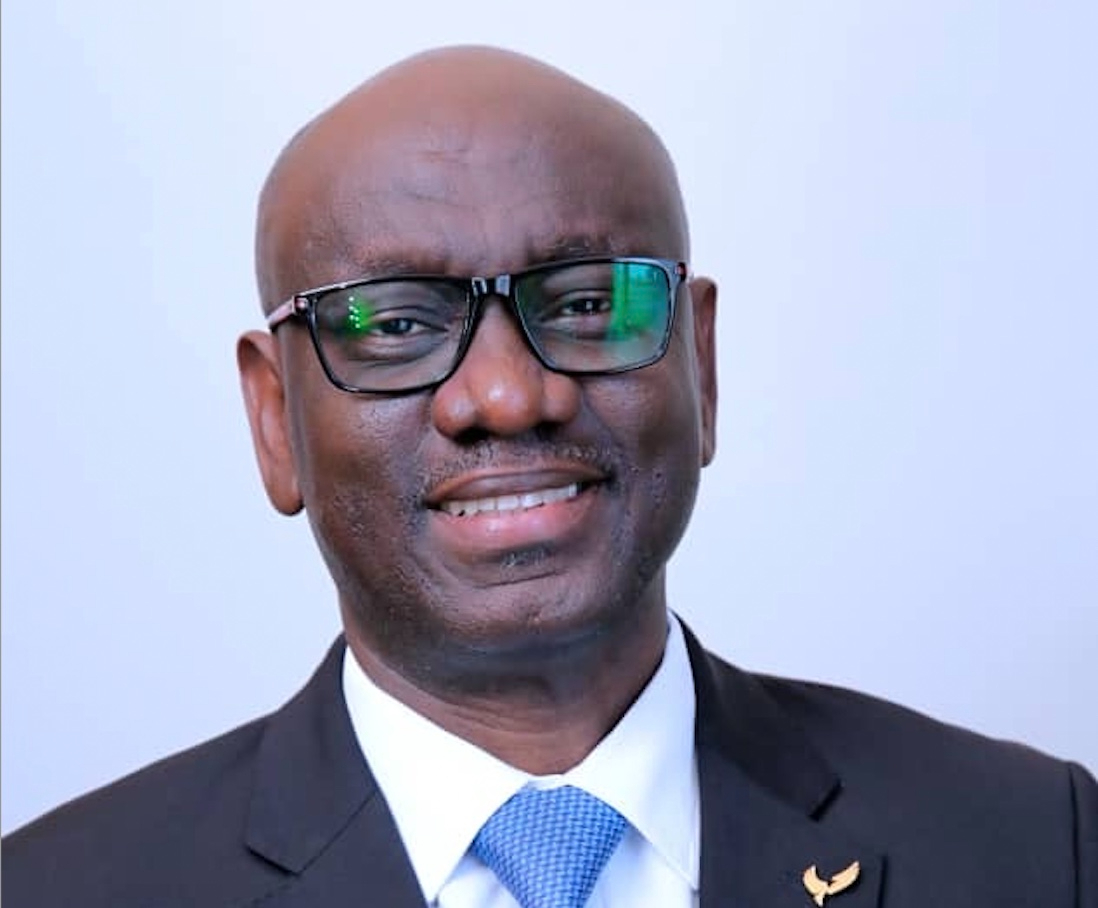
GCB Bank founded in 1953 is the first wholly indigenous bank in Ghana. It’s Ghana largest bank in terms of total operating assets, share of industry deposits, and reach providing banking services in urban and very remote areas. GCB Bank is currently ranked first in the banking sector. This year marks GCB Bank’s 70th anniversary and the Bank plans to achieve many more ‘firsts’ by delivering modern digital banking services in their country. For example, in 2020, GCB Bank became the first Bank in Ghana to launch a digital mobile money wallet when it launched the G-Money product.
We discussed with GCB Bank’s CIO, Abel Daitey, how they’re modernizing core banking systems. These systems form the foundation for delivering unique customer experiences and continuing to earn the trust of Ghanaians for the next 70+ years.
Joining the bank just two years ago, Abel immediately started addressing performance, availability, and business resiliency shortcomings of aging hardware. Within a year of his tenure, GCB Bank deployed two Oracle Exadata Database Machine X9M quarter-rack systems; one for production and one for disaster recovery (DR) for their core banking system databases. For data protection and ransomware resiliency, they chose Oracle’s Zero Data Loss Recovery Appliance X9M (Recovery Appliance) base rack for production and a 2nd one for their DR environment. While GCB Bank had long used Oracle Database on SPARC servers, this was their first experience using Oracle Engineered Systems from production to data protection.
When asked what, from a CIO perspective, he considers to be his biggest opportunities and challenges, Abel said “We, at GCB, believe adoption of digital banking and payments using mobile money represents a tremendous opportunity for us and is our fastest growing business segment.” As with other industries, fierce competition is an ongoing challenge with competitors trying to capture customer attention and market share. Abel added, “At GCB Bank we are proactively modernizing our systems to address existing customer needs and gain relevance in up and coming digital-first generations.”
Exadata addresses performance constraints
GCB Bank realized that its old infrastructure wasn’t performing optimally, which prompted them to look at Oracle Exadata. Abel explained, “I was familiar with Exadata from my professional network, and I saw it in action at another institution. Because Exadata is purpose-built, we knew it could handle whatever workload we threw at it. We also needed to address resiliency and ransomware concerns, which is why we chose Recovery Appliance.”
Their most pressing issue was poor OLTP performance; during peak periods database response times could be as high as 90 seconds and even worse, a high proportion of transactions failed. Abel described the problem they were facing, “No one wants to wait 90 seconds for credit card or mobile banking transactions to complete.” He then added, “After deploying Exadata, our database response time went down from as high as 90 seconds per transaction to less than 10 seconds from the start, and with a little tuning we’re averaging 1.6 seconds per transaction. Our accounting year-end processing is 2.5 times faster and end-of-day close is 3 times faster. The performance improvement from before and after Exadata was so significant, a branch office called to ask what happened and to thank me.”
GCB’s next high priority projects were increasing availability and business resiliency throughout the data’s lifecycle. Ghana regulatory requirements mandate that banks validate business continuity practices annually. GCB Bank’s policy was quarterly, although at times, they fell short of their goal because legacy processes of failing over to DR and then back to production were tedious and took about 30 minutes. Abel described the benefits their new systems provided in this area, “Exadata makes our business continuity testing easy with 2 to 3 steps; BOOM you’ve failed over to DR with the whole process taking a couple minutes. Honestly, Exadata takes the hassle out of DR testing.”
After their first post-Exadata round of DR testing, GCB discovered an unexpected benefit; unsolicited praise for Exadata from the bank’s business continuity manager during an executive meeting. Abel explained, “When you hear stakeholders or vendors you didn’t intentionally set out to satisfy, now praising the Exadata solution – It means you did something right!”
Business Continuity and Cyber-Resiliency with Oracle’s Zero Data Loss Recovery Appliance
Data protection is another layer of the bank’s business continuity and cyber-resiliency plan. Like most organizations, it wasn’t feasible for GCB Bank to manually validate every backup for recoverability and Abel knew this represented a resiliency gap. He added, “People test a backup here and there which gives them a false comfort. That comfort is of no use if the backup you need to restore wasn’t tested and is unrecoverable.”
Abel and his team were using best practices for backing up databases, although they didn’t have the level of confidence they wanted if they needed to recover from backups in the event of a ransomware attack. According to Abel, “We just weren’t sure that we could avoid having to pay a ransom if hackers got in; Recovery Appliance gives us the confidence we were looking for. Our data is protected in real-time, backups are continuously validated and we can quickly restore to any point in time with zero data loss. This gives us the resiliency to say no to hackers – I’m pretty happy with that device.”
Changing the Dynamics with Auditors and Innovation
In Ghana, Central Bank auditors periodically check the bank’s logbook proving backups were periodically restored from tape as a test of recoverability. Abel explained how their new Oracle systems helped in this area, “Exadata and Recovery Appliance have changed the dynamics we have with bank auditors. I tell them to come see what we can achieve with our new solutions; continuous transaction protection, recovery validation, and we can easily failover to DR—then you’d realize logbook checks are not that important.”
GCB Bank is on a mission to be at the forefront of innovation of digital banking in the country. Securing a solid infrastructure for their core banking systems integrated from end-to-end with fit-for-purpose technology was a crucial step to empower their innovative team. GCB has run Exadata and Recovery Appliance for a little less than a year and have started using additional capabilities which help them generate even more value and ‘do more with less’. They are also exploring using Exadata’s versatility to support data warehouse workloads and advanced analytical use cases which could be run in parallel to their OLTP applications on their existing Exadata and protected with Recovery Appliance.
As our discussion concluded, we asked if there were any additional benefits Abel would like to highlight. He shared, “For me the biggest advantage I have is how much Exadata and Recovery Appliance have offloaded manual tasks from my DBAs—the systems deliver great performance and practically take care of themselves. They’re an all-around win for us with better customer and employee experiences. Apparently, others are now following our lead and who knows, perhaps, we’ll be able to convince Central Bank auditors that all backups should be validated, not just one per month.”

